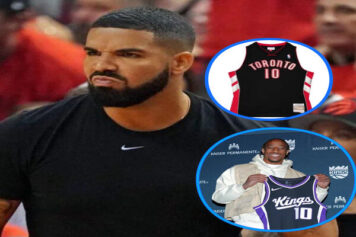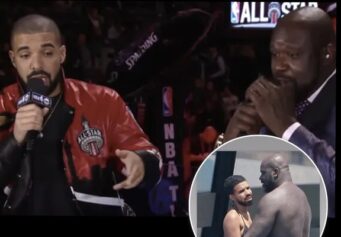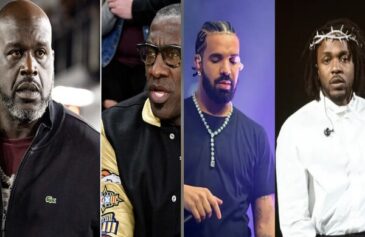Video games were already mainstream before your Fortnite stream, sir.
Sorry Ninja, but Drake did not make gaming a “mainstream cool” thing, and he especially didn’t for the Black community.
Tyler “Ninja” Blevins previously set a new stream record while playing Fortnite with Drake, Travis Scott and Steelers’ Juju Smith-Schuster. With their collective influence, the stream drew in 600,000 viewers. Now, 600k views is a huge achievement and rightfully should be recognized. But what’s interesting is Ninja’s correlation between that success and the overall impact of video games.
In a recent interview with Variety, Ninja said, “Drake, that is what pushed gaming into the mainstream and made it cool.” Now, one could argue that Drake’s global influence helped pushed Fortnite forward to the masses. But to say he pushed gaming to the masses completely ignores the historical growth of video games as a genre and business.
The success and global fandom of video games and consoles contributed to its own commercial growth. If we take a look at sales to gauge console popularity, PlayStation 2 and Nintendo DS sold well over 150 million units, while Gameboy and PlayStation 1 sold over 100 million units.
Hollywood’s love-hate relationship with live-action video game movie adaptations is just as old as the culture itself. We’ve come along way from Mortal Kombat and Super Marios to Pokemon: Detective Pikachu and Sonic the Hedgehog in CGI.
When the 32-Bit console wars were at a fever pitch, hip-hop culture, and by default Black culture was used to introduce gaming to a wider audience, with variable measures of success. There was PaRappa The Rapper. Back in 1996, Sony leaned in and made sure everyone was kicking and punchin’ ad nauseam with their popular TV commercials.
https://www.youtube.com/watch?v=ksxUY9tNC4Q
Fighting games and sports games have always been staples within the Black gamer community. Word To Shaq Fu. In 1999, rap supergroup the Wu-Tang Clan released their notable 3D game Wu-Tang: Shaolin Style on PlayStation. And although it received mixed reviews, the game’s simultaneous four-player combat function was unique. This game and 1995’s Rap Jam: Volume One served as catalysts for future hip-hop influenced video games.
The Def Jam fighting game series was ahead of its time. In 2003, fans were introduced to the cult classic Def Jam: Vendetta that borrowed heavily from the popular THQ wrestling games of the day. Followed by Def Jam: Fight for NY in 2004 and Def Jam: Icon in 2007, this series, more specifically Fight For NY, was one of the first commercial and game review successes for hip-hop based games.
Jay-Z curated the soundtrack for NBA2k13 back in 2012 while serving as the executive producer that’s been a standard of the series since. The success of this relationship created more 2K music opportunities for hip-hop acts such as Pharrell and Travis Scott.
If we want to keep it a buck, Soulja Boy deserves credit before all social media savvy rappers for his impact in the mid to late 2000s. The Crank Dat rapper not only actively played online via the original Xbox console but started doing video game vlogs before the age of Twitch.
I can go on and on with this list but at the end of the day, gaming communities and hip-hop made video games more popular. Drake’s influence is just the icing on the cake.



